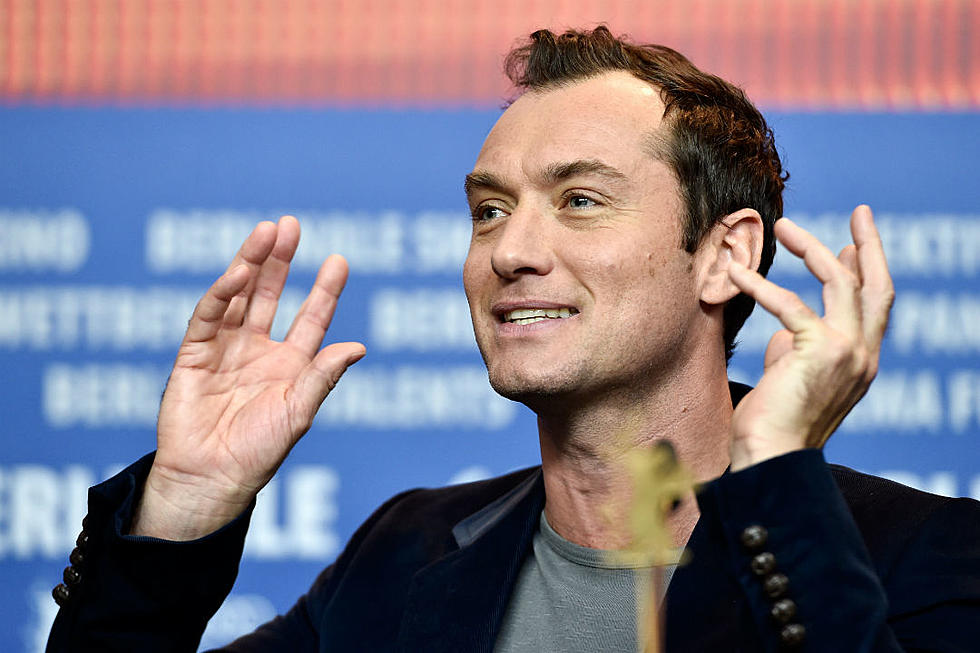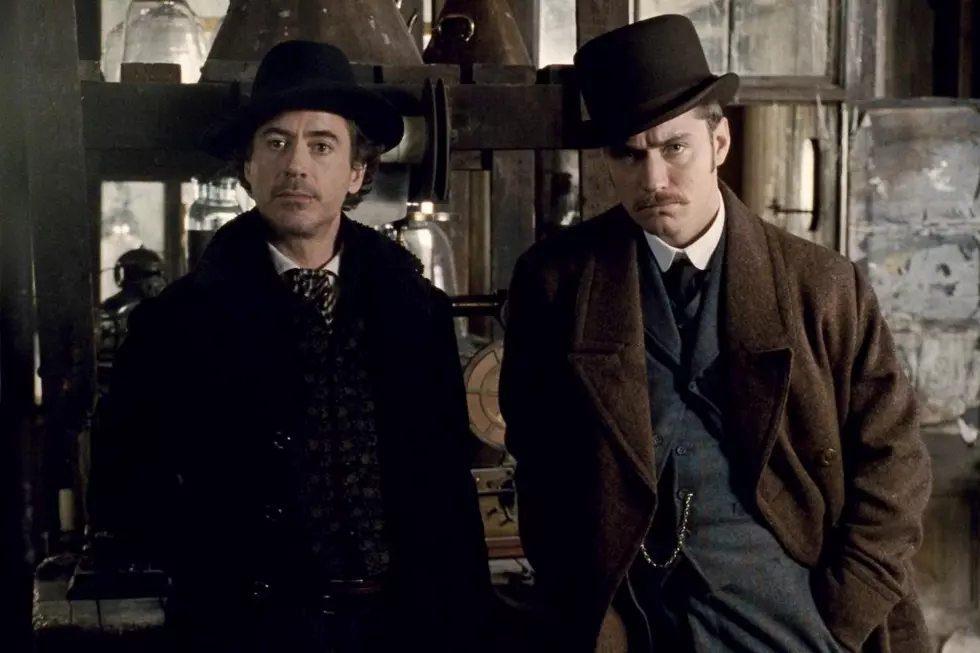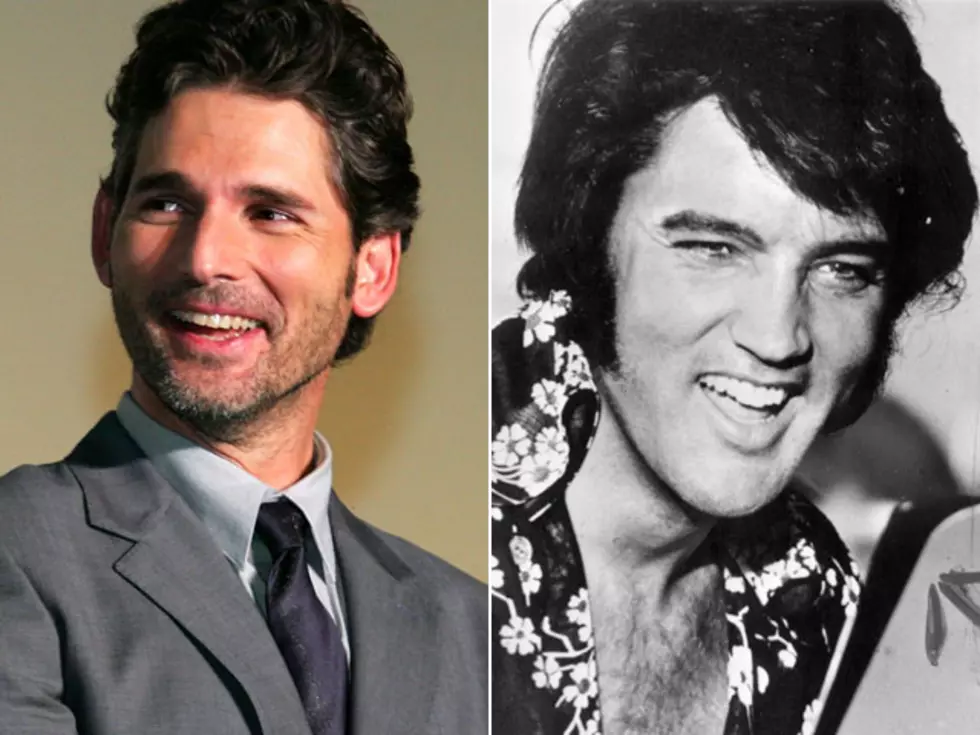
‘King Arthur: Legend of the Sword’ Review: This Superheroic Spin on a Classic Could Use More Personality
The last King Arthur movie from 2004, the one directed by Antoine Fuqua and starring Clive Owen and Keira Knightley, made just $52 million domestically against a $120 million budget, numbers that don’t exactly suggest a hungry audience clamoring for more Arthurian content. But not even a marginally popular brand is immune to Hollywood’s current reboot fixation, and so here is Guy Ritchie’s King Arthur: Legend of the Sword.
Fuqua’s version, made in the wake of Gladiator, purported to be “the untold true story that inspired the legend.” Ritchie takes more liberties, unless I’m mistaken and the real Arthur’s dad fought elephants the size of mountains and wielded a sword that could slow time. His film draws inspiration from superhero stories and medieval fantasy shows. The target audience for his film appears to be people who wish Game of Thrones was less complicated and didn’t have any sex or nudity.
Its version of Arthur, played by Charlie Hunnam, is a Moses-esque (or Superman-esque) orphan raised in a brothel after his parents (including Eric Bana as King Uther Pendragon) are slaughtered in a coup engineered by Arthur’s power-mad uncle Vortigern (Jude Law). A frantic montage speeds us through Arthur’s next decade learning to survive on the mean streets of Londinium with the help of (who else?) a random kung-fu master (Tom Wu).
As Vortigern amasses power, Arthur lives in contented obscurity protecting his prostitute friends (which I think technically makes him a pimp; the movie doesn’t delve too deeply into that part). That all changes the day the magic sword Excalibur emerges from the waters below Vortigern’s tower, and the evil king begins rounding up every man in the kingdom in order to find Uther’s son — supposedly the only one who can pull the sword from the stone — and kill him before he rises to power.
Even after he’s rescued by the film’s version of the Knights of the Round Table (led by Djimon Hounsou’s Sir Bedevere) Arthur’s none-too-keen to take on this responsibility. Of course, since this is a $100 million action movie, Arthur comes around, mostly at the insistence of “The Mage” (Astrid Berges-Frisbey), a powerful wizard who serves as the Obi-Wan Kenobi to his Luke Skywalker (and as the movie’s Merlin substitute). Under the Mage’s guidance, Arthur learns how to properly wield Excalibur which, once mastered, has the ability to unleash waves of bad special effects upon his enemies.
King Arthur is the latest in a string of Guy Ritchie movies to transform popular old stories into studio tentpoles. Legend of the Sword closely follows the template he established with his two Sherlock Holmes pictures and The Man From U.N.C.L.E.: Maintain the stories’ period settings while updating the material with modern special effects and sensibilities. Like those three previous efforts, Ritchie’s King Arthur values style and cool over everything else, and the results, which are handsome but trite, reflect that. At least the Sherlocks had extremely charismatic lead performances from Robert Downey Jr.; despite his rugged features, a sweet shearling vest, and a physique that would make a crossfit model jealous, Charlie Hunnam isn’t in Downey’s league, and his legion of ten or so sidekicks have maybe three personality traits between them.
The filmmaking is a bit more distinctive. Ritchie plays with time, storytelling, and flashbacks in a way that recalls his old crime pictures like Snatch; the heroes narrate events, some of which haven’t even happened yet, as Ritchie’s frequent editor, James Herbert, cuts back-and-forth between locations and timelines. Daniel Pemberton’s score, which turns the sound of human breath into an insistent, percussive instrument, is bold and memorable. And Ritchie has a way of undercutting big moments — like when he turns Arthur’s emotional epiphany into a bunch of rapid-fire punchlines — that at least breaks from the monotony that has quickly come to define this sort of bloated summer action movie.
That’s all King Arthur is, though: A bloated action movie with occasional breaks in the monotony. It’s Perfectly Fine™; entirely competent but unexceptional in just about every way. Unlike the original tales of King Arthur, which reverberated down through the centuries, this one evaporates from the mind within minutes. A few days after the press screening, just two things remain firm in my memory: The film’s clever explanation for how Excalibur got stuck in its famous stone, and the impressive design of the demonic villain who murders Arthur’s family. Still, give Legend of the Sword this much credit: Of all the tellings of the Arthurian legend, this is the most recent.
Additional Thoughts:
-Several times during the movie, characters refer to Arthur as “the boy king.” Charlie Hunnam is 37 years old.
-The subtitle of this movie is Legend of the Sword. The sword is certainly important. But the legend? That comes up once for maybe 20 seconds.
-When this movie was announced, the word was that Warner Bros. wanted to make at least six films set in this universe. Optimism is a beautiful thing.
More From KLAW-FM



![Jude Law Talks Acting with Nicolas Cage on ‘Saturday Night Live’ [VIDEO]](http://townsquare.media/site/111/files/2011/12/snllawcage.jpg?w=980&q=75)



